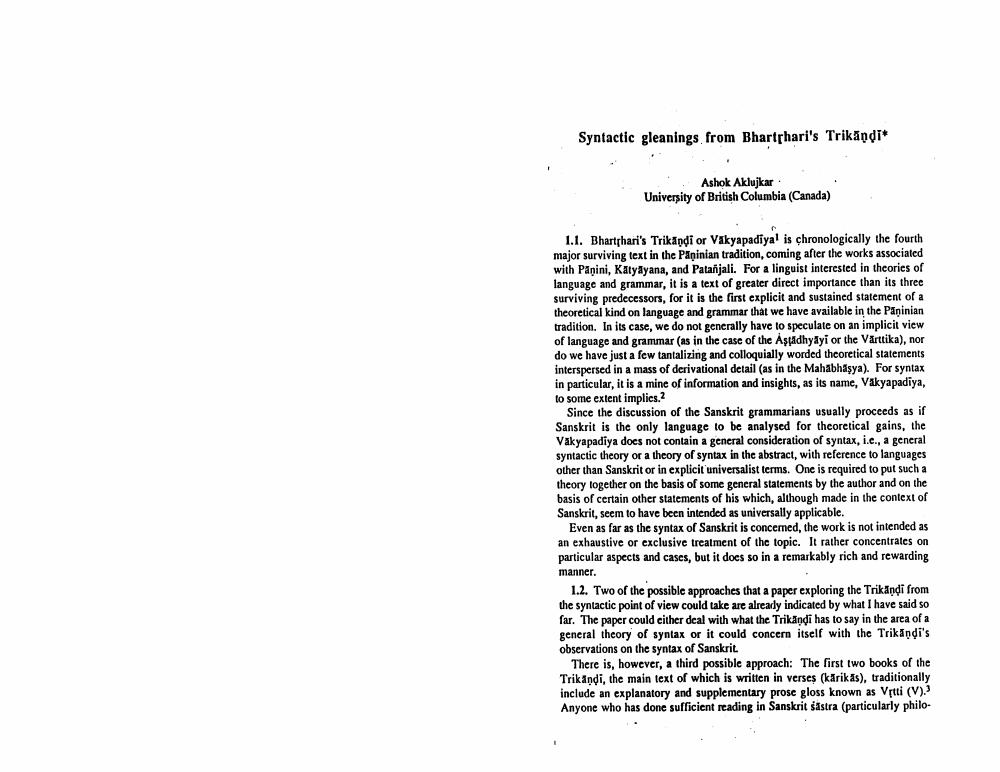Book Title: Syntactic Gleanings From Bhartharis Trikandi Author(s): Ashok Aklujkar Publisher: Ashok Aklujkar View full book textPage 1
________________ Syntactic gleanings from Bharthari's Trikandi Ashok Aklujkar University of British Columbia (Canada) 1.1. Bharthari's Trikandi or Vakyapadiyal is chronologically the fourth major surviving text in the Papinian tradition, coming after the works associated with Papini, Katyayana, and Patanjali. For a linguist interested in theories of language and grammar, it is a text of greater direct importance than its three surviving predecessors, for it is the first explicit and sustained statement of a theoretical kind on language and grammar that we have available in the Papinian tradition. In its case, we do not generally have to speculate on an implicit view of language and grammar (as in the case of the Aşadhyayi or the Varttika), nor do we have just a few tantalizing and colloquially worded theoretical statements interspersed in a mass of derivational detail (as in the Mahabhayya). For syntax in particular, it is a mine of information and insights, as its name, Vakyapadiya, to some extent implics.? Since the discussion of the Sanskrit grammarians usually proceeds as if Sanskrit is the only language to be analysed for theoretical gains, the Vakyapadiya does not contain a general consideration of syntax, i.c., a general syntactic theory or a theory of syntax in the abstract, with reference to languages other than Sanskrit or in explicit universalist terms. One is required to put such a theory together on the basis of some general statements by the author and on the basis of certain other statements of his which, although made in the context of Sanskrit, seem to have been intended as universally applicable. Even as far as the syntax of Sanskrit is concemed, the work is not intended as an exhaustive or exclusive treatment of the topic. It rather concentrates on particular aspects and cases, but it does so in a remarkably rich and rewarding manner. 1.2. Two of the possible approaches that a paper exploring the Trikandi from the syntactic point of view could take are already indicated by what I have said so far. The paper could either deal with what the Trikandi has to say in the area of a general theory of syntax or it could concern itself with the Trikandi's observations on the syntax of Sanskrit There is, however, a third possible approach: The first two books of the Trikandi, the main text of which is written in verses (karikas), traditionally include an explanatory and supplementary prosc gloss known as Vitti (V).' Anyone who has done sufficient reading in Sanskrit sastra (particularly philoPage Navigation
1 2 3 4 5 6
